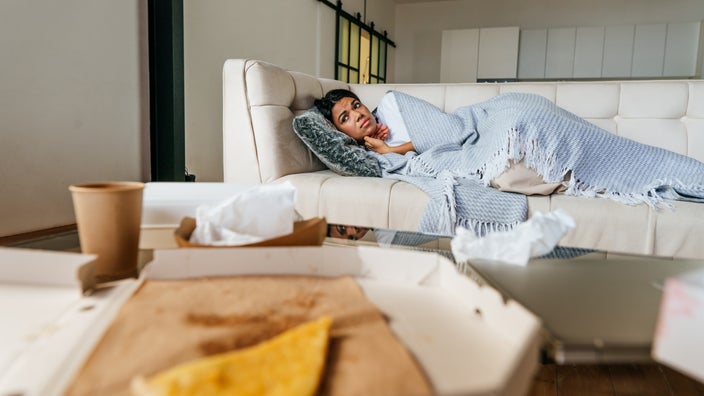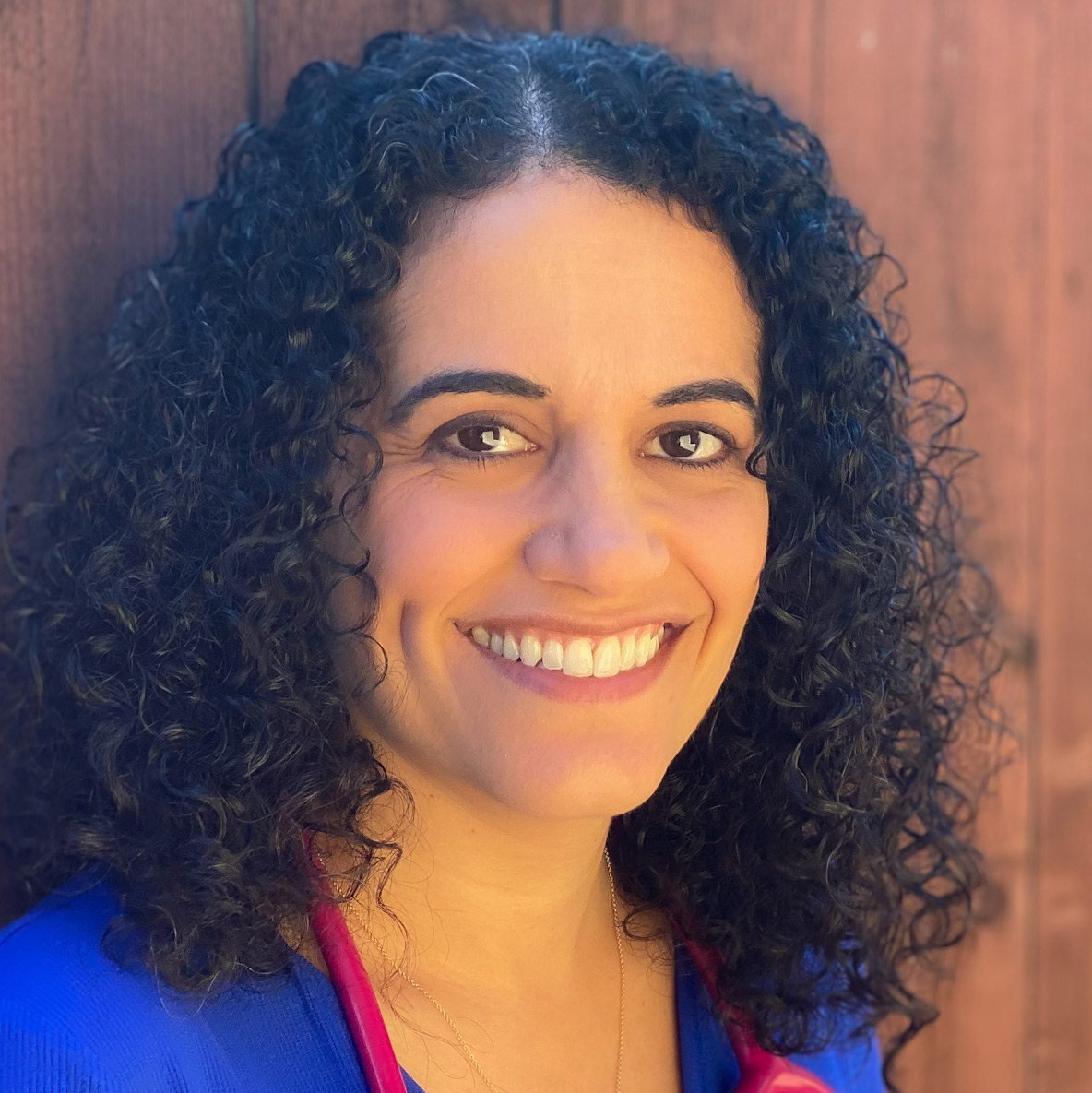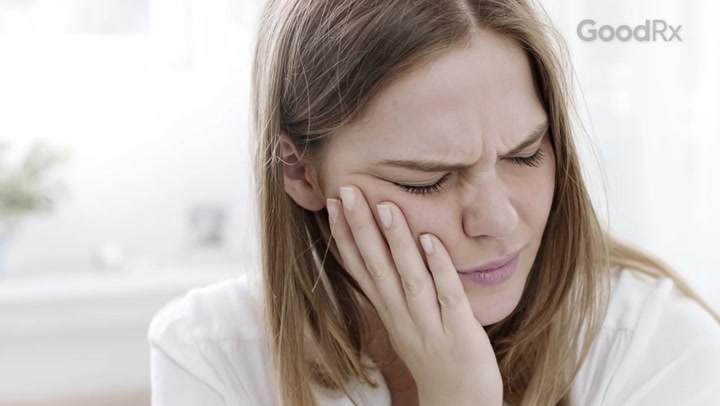
Feeling Tired After Eating? Here Are 7 Possible Reasons and How to Overcome Your Sleepiness
Key takeaways:
People often describe the feeling of being tired after eating as a “food coma.” But the official term is postprandial somnolence.
The types of foods you eat — and when and how much you eat — can affect how sleepy you feel after a meal. But being tired after meals can also be related to an underlying medical condition.
You can prevent fatigue after eating by consuming smaller meals with fewer carbohydrate-heavy and fat-filled items, being physically active, and avoiding alcohol.
Table of contents

Food is supposed to give you energy. So why do you feel tired after eating a big meal?
Fatigue after eating could just be a sign that your body is working extra hard to digest your food. But it could also signal that something’s off with your glucose (sugar) and insulin response or that there’s an underlying condition that’s the cause.
Why do I get tired after I eat?
Scientists aren’t exactly sure what causes the feeling of sleepiness after meals. The leading theory used to be that, when you eat, blood is diverted toward your digestive system and away from your brain. Other studies have claimed to debunk that theory, suggesting instead that, after you eat, hormones are released from your gut that affect your brain’s sleep centers.
Despite the uncertainty about the cause, getting tired after eating is a real phenomenon. While the technical term is postprandial somnolence, many people call this feeling a “food coma.”
Sugar and energy: Can you really have a sugar “high” or “crash” after eating certain foods? Here’s what happens when you eat a lot of sugar.
Feeling tired all the time: Not getting enough sleep is a common cause of daytime sleepiness. But consistently feeling tired may signal an underlying health condition.
Tips for better sleep: Feeling tired and sluggish? Try these sleep hygiene strategies for quality rest.
Potential causes of fatigue after eating
Some people with underlying health conditions are more prone to feeling tired after eating. But the types of food and when you eat can also cause fatigue after meals. Here are seven potential factors that may affect why you feel like falling asleep after eating.
1. What you’re eating
One study found that any kind of food can lead to sleepiness. But meals that are high in fats and those that mostly consist of carbohydrates have been associated with more sleepiness after eating. And some foods contain the sleep-regulating hormone melatonin, which can also make you want to nap after a meal.
2. Larger meals
Most people have experienced the fatigue that can come on after eating a large meal. But, surprisingly, there aren’t a lot of studies looking specifically at meal size as a trigger for food-related sleepiness.
Save over 40% on Qsymia with GoodRx
Discover the once daily Qsymia for weight management. Qsymia is for adults and children 12-17 in combination with a healthy diet and regular exercise.

One study looked at fruit flies and found a clear connection between meal size and sleepiness. The bigger the meal, the more the flies slept after eating. It’s likely that humans aren’t too different.
3. Timing of meals
Your body has a circadian rhythm that controls your sleep-wake cycle. It helps you nod off to sleep at night and also causes a dip in alertness in the middle of the day. Many people call this an “afternoon slump.”
This drop in energy often happens around 1PM to 4PM. So, if you’ve noticed that lunch is the meal that has you reaching for a pillow, it might be your body’s circadian rhythm playing an important role.
4. Alcohol with meals
Alcohol is known to cause sleepiness. If you drink it with a meal, you’re much more likely to feel tired after eating. And if it happens to be a carb-heavy meal in the afternoon, you’re just about guaranteed to find yourself ready for a nap.
5. Low blood sugar
People often talk about a “sugar crash” after eating. But for most healthy people, the body is able to tightly regulate blood sugar levels by releasing just the right amount of insulin during a meal. So, the idea of a sugar crash is mostly a myth.
But some people with underlying health conditions do experience a true drop in their blood sugar level after meals. This is known as reactive hypoglycemia, or postprandial hypoglycemia. It occurs about 2 to 5 hours after a meal. This is different from the regular post-meal sleepiness, which tends to happen 30 to 60 minutes after a meal.
Read more like this
Explore these related articles, suggested for readers like you.
Postprandial hypoglycemia is most commonly seen in people who have:
Since this happens with true low blood sugar, versus a so-called sugar crash, the sleepiness often occurs along with symptoms such as:
Shakiness
Sweating
Heart palpitations
Confusion
6. Insulin resistance
Insulin resistance can also cause fatigue after a big meal. This is when the insulin in your body can’t do its job of bringing glucose into your cells. Glucose is a major form of energy for the body, so you’re more likely to feel sluggish without it powering your cells.
The most common cause of insulin resistance is either diabetes (or prediabetes). But it’s possible to have insulin resistance that’s not related to diabetes. Other factors that can lead to insulin resistance include:
Inactive lifestyle
7. Underlying health conditions
If you have a medical condition that makes you sleepier in general, it’s more likely that you’ll feel tired after a meal. Health conditions that are known to lead to fatigue include:
Obstructive sleep apnea (OSA)
Abnormal thyroid levels
What foods make you sleepy?
As noted above, it’s possible that all food has the potential to make you feel tired after eating. But some types of foods are more likely to make you feel sleepy than others, including:
Carbohydrate-heavy foods: Think pasta, bread, and white rice, as well as potato chips and pastries.
Fatty foods: Some examples include fried foods, red meat, and items made with heavy cream or butter.
Foods with melatonin: Eggs, pistachios, and tart cherries are all especially high in melatonin.
How to stop feeling tired after eating
Post-meal sleepiness can come at the worst times — just before a work presentation or right before the drive home. The good news is that there are things you can do to keep your energy levels up and prevent sleepiness after eating.
Here are some tips to avoid feeling tired and sluggish:
Eat well-balanced meals that can help boost energy.
Eat smaller meals more frequently throughout the day.
Avoid drinking alcohol with your meals.
Aim to get enough quality sleep.
Make time for regular physical activity.
Take time to go outside and soak in sunlight.
When to get help for fatigue
Feeling sleepy after a big meal probably isn’t anything to worry about. But if you need to take a nap after most meals or you feel tired all the time, it’s best to connect with a healthcare professional. They can help you figure out if an underlying health condition might be contributing to your fatigue.
The bottom line
Feeling tired after eating is common. But, in some cases, it can be a sign of an underlying health issue, like insulin resistance or diabetes.
While scientists don’t know exactly why people get sleepy after eating, there are steps you can take to boost your energy levels, including eating smaller, balanced meals, moving regularly, and getting good quality sleep. But if you often get tired after eating, it’s a good idea to check in with a healthcare professional. They can help you figure out the reason behind your fatigue and suggest possible ways to feel less tired after eating.
Why trust our experts?



References
Altuntas, Y. (2019). Postprandial reactive hypoglycemia. Şişli Etfal Hastanesi Tip Bülteni.
Bazar, K. A., et al. (2004). Debunking a myth: Neurohormonal and vagal modulation of sleep centers, not redistribution of blood flow, may account for postprandial somnolence. Medical Hypotheses.
Cunliffe, A., et al. (1997). Post-prandial changes in measures of fatigue: Effect of a mixed or a pure carbohydrate or pure fat meal. European Journal of Clinical Nutrition.
Kvietys, P. R. (2010). Chapter 5: Postprandial hyperemia. The Gastrointestinal Circulation.
Murphy, K. R., et al. (2016). Postprandial sleep mechanics in Drosophila. eLife.
Orr, W. C., et al. (1997). Meal composition and its effect on postprandial sleepiness. Physiology & Behavior.
Slama, H., et al. (2015). Afternoon nap and bright light exposure improve cognitive flexibility post lunch. PloS One.
Stahl, M. L., et al. (1983). Postprandial sleepiness: Objective documentation via polysomnography. Sleep.
Wells, A. S., et al. (1997). Influences of fat and carbohydrate on postprandial sleepiness, mood, and hormones. Physiology & Behavior.





























